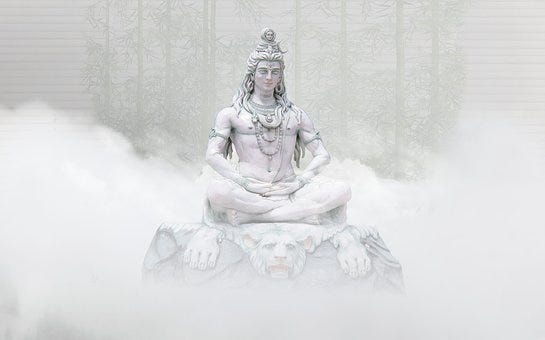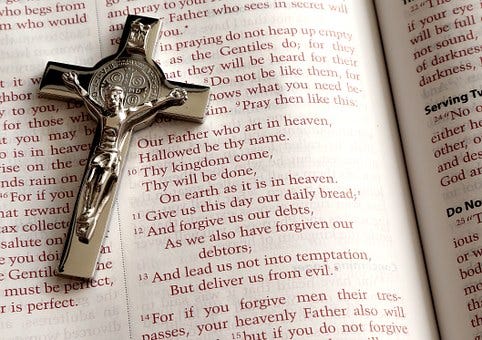
This article comes within the context of an overall theme of mine, Why Christianity Must Change or Die.
The Perennial Philosophy is the idea that at their heart all religions are the same, despite their apparent differences. It is the name of a book by Aldous Huxley, who outlined and discussed it there (1). It is also called Traditionalism, which I have heard described by the esoteric writer Gary Lachmann as “an extreme form of the Perennial Philosophy”. This is described in Traditionalism: Religion in the Light of the Perennial Philosophy by Kenneth Oldmeadow (2).
If ‘extreme’ is a harsh word to use, some evidence that Traditionalism is at least extremely strict, perhaps dogmatic, is that Oldmeadow is critical of Huxley’s book. However, Frithjof Schuon, a prolific Traditionalist author, wrote The Transcendent Unity of Religions (3), which shows that the essential idea remains the same.
Despite this, in the modern world most religious people think that theirs is the one true religion, and are sometimes extremely critical of the beliefs of others. This seems to be especially true of the Abrahamic religions — Judaism, Christianity, and Islam.
I am most concerned about Christianity, since that is the dominant religious force in Western societies, including the one where I live. Here I am not going to go into what I think Christianity needs to do. Instead I’ll just make a couple of observations.

The Perennial Philosophy is more usually associated with Eastern religions, especially Hinduism; the Bhagavad Gita has been described as its finest exposition. In the preface to one edition of it, Sri Daya Mata says: “The underlying essential truths of all great world scriptures can find common amity in the infinite wisdom of the Gita’s mere 700 verses”, and “the entire knowledge of the cosmos is packed into the Gita”. It is interesting to note, therefore, that following the scientific revolution of quantum physics, in his classic book The Tao of Physics (5), Fritjof Capra immediately started to make connections with the ancient Eastern religions; he has chapters on Hinduism, Buddhism, Taoism, and Zen, but no chapters on Christianity, Judaism, or Islam. This strongly indicates that these Eastern traditions had a far better understanding of the nature and workings of the universe.
There is a book called A Treasury of Traditional Wisdom (6), which is a thousand-page anthology of Perennial Philosophy quotes and thinking. It would be reasonable to describe it as a compendium of religious and spiritual truth down the ages. Although there are occasional quotes from the Gospels, and some quotes by Christians, most often mystics like Meister Eckhart and Jacob Boehme, there are far more from Eastern traditions, Plato and the neo-Platonist Plotinus, Egyptian Hermetic sources, the Qur’ân, and more besides, including Native American sources.
So, how seriously can we take Christianity’s claims to have exclusive access to the truth, and its rejection of other traditions?

Footnotes:
(1) Chatto & Windus, 1946
(2) Sri Lanka Institute of Traditional Studies, 2000
(3) Quest Books, the Theosophical Publishing House, 1993
(4) The Bhagavad Gita, Paramahansa Yogananda, Self-Realization Fellowship, 1999, Pxviii
(5) Wildwood House, 1975 and Fontana, 1976
(6) Whitall Perry, Perennial Books Ltd., Second Edition, 1981